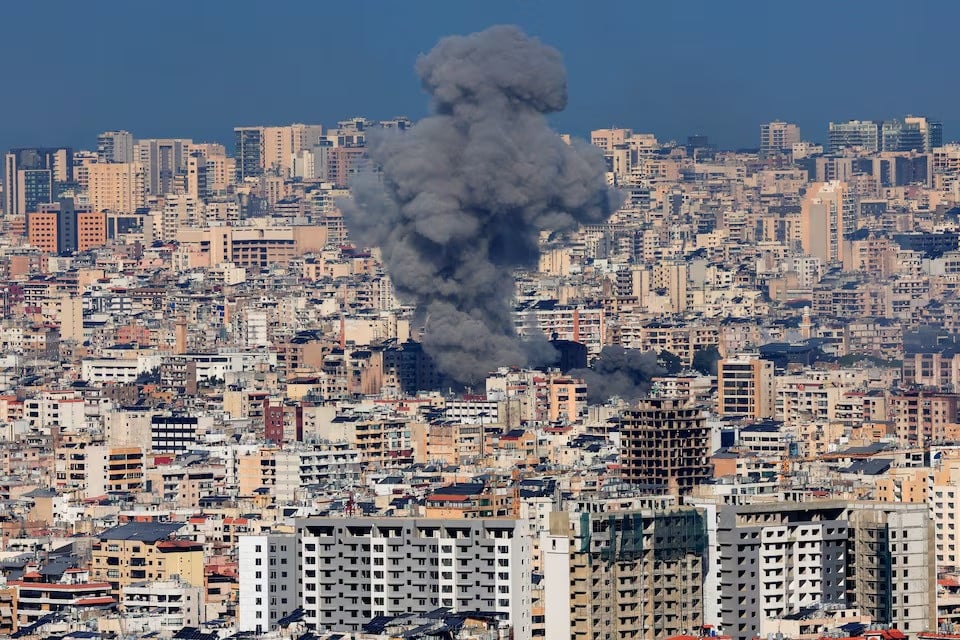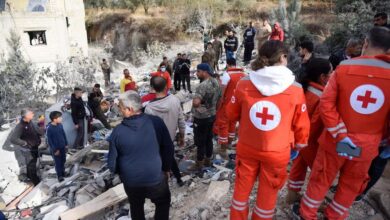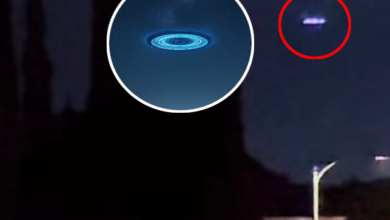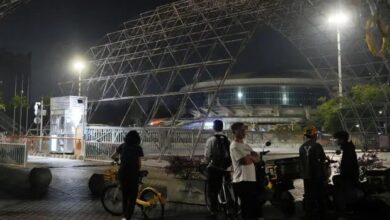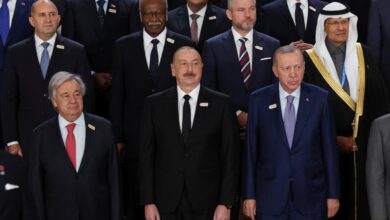Efforts to secure a ceasefire in Lebanon showed tentative progress on Thursday as Israel continued intensive airstrikes, particularly targeting Hezbollah strongholds around Beirut.
Strikes hit the Hezbollah-controlled southern suburbs of Beirut, known as Dahiyeh, for a third consecutive day, causing significant damage to five buildings, according to local sources. “We say, God help us,” remarked Ayat, a Lebanese resident.
The Israeli military reported targeting Hezbollah’s weapons storage sites, military headquarters, and additional infrastructure. Additionally, airstrikes in Baalbek killed at least 20 people, while 11 others were killed in southern Lebanese towns, as confirmed by local authorities and Lebanon’s National News Agency.
In a more hopeful development, the US ambassador to Lebanon presented a draft proposal for a truce to the Speaker of Lebanon’s Parliament, Nabih Berri, marking Washington’s first formal effort in weeks to negotiate peace between Israel and Hezbollah.
A source described it as an initial draft for review by Lebanese authorities, with a US embassy spokesperson affirming that diplomatic efforts are ongoing.
There were earlier signs of optimism in late October, when Lebanon’s Prime Minister suggested a possible ceasefire by month’s end, including an initial 60-day truce with Israel withdrawing from Lebanese territory within the first week. A lasting peace deal would involve implementing UN resolutions.
In Israel, Energy Minister Eli Cohen, a member of the security cabinet, expressed that the prospects for a ceasefire were now stronger than at any point since hostilities began. The Biden administration is accelerating its peace efforts before the US presidency transitions to Donald Trump in January.
Meanwhile, Israeli Prime Minister Netanyahu reportedly sought to finalise a Lebanon truce, aiming to secure an early foreign policy success for Trump, who is expected to be firmly pro-Israel.
Despite prolonged US attempts to mediate, Israel has escalated air and ground operations in Lebanon since September amid ongoing border skirmishes linked to the Gaza conflict.
In another hopeful sign, a senior Lebanese official suggested Hezbollah might withdraw from the Israeli-Lebanese border under a truce. Ali Hassan Khalil, a Lebanese negotiator, disclosed that tentative agreements had been reached with the US White House envoy Amos Hochstein during an October visit to Beirut.
Israel’s conditions include retaining the freedom to act along the border if Hezbollah returns. Khalil, however, opposed this condition, while affirming Lebanon’s readiness to “strictly” enforce UN Security Council Resolution 1701, which requires Hezbollah to withdraw from the border zone to the Litani River, about 30 km from the southern border.
The UN and other key nations maintain that a truce must adhere to Resolution 1701. Israel has previously alleged Hezbollah’s continued presence near the border, while Lebanon accused Israel of violating the resolution through airspace incursions.
The UN announced that its peacekeeping forces would support the Lebanese army during a ceasefire but would not directly enforce it. Lebanon has no objections to US or French involvement in monitoring compliance.
A World Bank report assessed the economic impact of the conflict on Lebanon at $8.5 billion, a severe blow for a country already grappling with the repercussions of a financial crisis five years prior.
The Lebanese Health Ministry reported that since 7 October 2023, Israeli attacks have killed at least 3,386 people. According to Israeli sources, Hezbollah’s assaults over the past year have claimed around 100 lives in northern Israel, the Israeli-occupied Golan Heights, and southern Lebanon.

